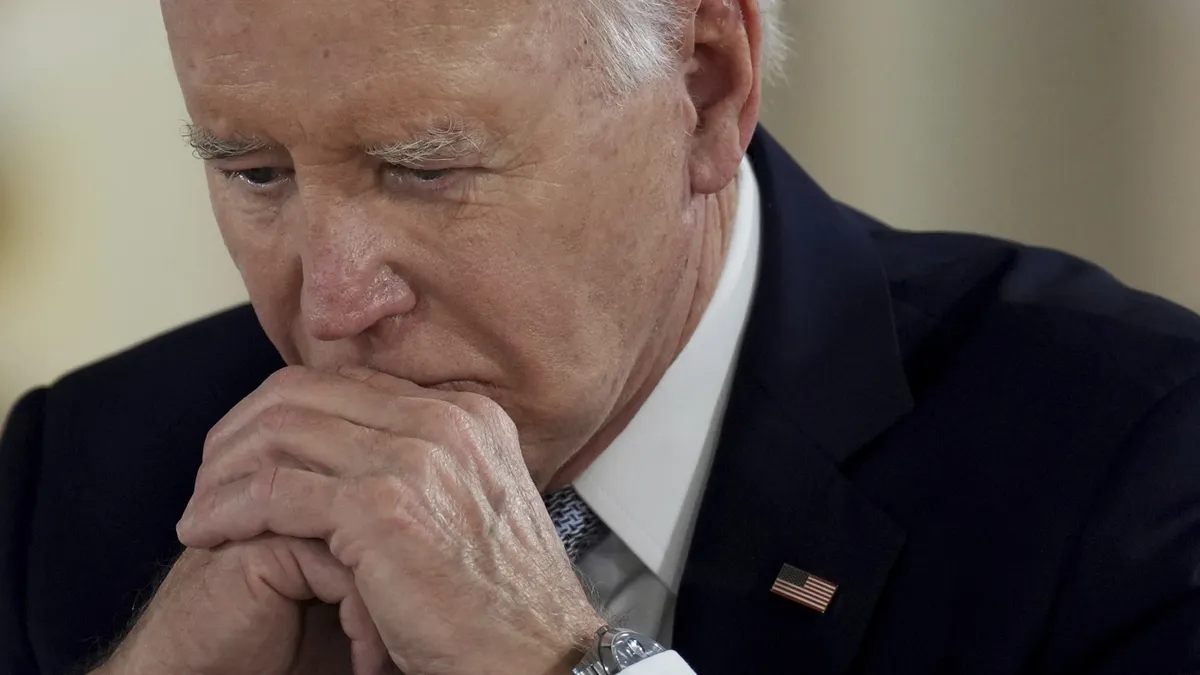
CNN's Jake Tapper has recently co-authored a book titled Original Sin: President Biden's Decline, Its Cover-Up, and His Disastrous Choice to Run Again alongside Axios' Alex Thompson. In this deeply insightful narrative, Tapper describes a duality in Biden's persona: the first being the charismatic leader known during his vice presidency and the second representing a non-functioning Joe Biden whose abilities began to deteriorate significantly from 2019 onward.
According to Tapper, the latter version of Biden increasingly emerged during his presidency, revealing a series of troubling signs. The book outlines instances where Biden failed to recognize long-time political allies, lost his train of thought during crucial discussions, and even forgot significant personal dates, such as his son Beau's death. "We in the public would see some of it in front of the cameras," Tapper reflects, "but we had no idea how bad it was."
One source described the situation within the White House by stating that the presidency resembled "a five-person board with Joe Biden as chairman." This characterization raises serious questions about the operational capacity of the current administration.
The book's revelations took center stage during a June 2024 debate between Biden and then-presidential candidate Donald Trump. Biden's performance was marked by halting responses and difficulty articulating his case for reelection. Tapper, who moderated the debate, admits he was concerned about whether Biden could endure the full 90 minutes of the event. A month later, Biden made the decision to withdraw from the presidential race, a move Tapper now wishes had been preceded by more aggressive coverage of the president's decline.
Reflecting on this missed opportunity, Tapper states, "I can point to times where I asked him this or I asked them that... but knowing what I know now, I barely scratched the surface. I need to run more towards the discomfort of questions about health because they're so important and they're so under-covered in Washington."
In a somber turn of events, Biden's office announced that the former president has been diagnosed with an aggressive form of prostate cancer that has metastasized to the bone. Tapper expressed his condolences, stating, "My heart goes out to him. My prayers are with him. I hope the hormone therapy for the cancer works." He emphasizes that this unfortunate diagnosis is part of the broader narrative surrounding Joe Biden's life.
Tapper crafted the book as a tragedy, outlining a life marked by significant hardships and resilience. He describes Biden as someone who embodies the spirit of perseverance, stating, "Here is a person that has gone through so much in his life... which is the guy who gets up after getting knocked down." This resilience has shaped a narrative around Biden that some believe may have led to unrealistic expectations regarding his performance as president.
The book further explores how the Biden administration managed public perceptions of the president's decline. Tapper points out that initially, staffers aimed to present Biden in the best light, but this quickly devolved into a reliance on crutches such as note cards and teleprompters even during intimate gatherings. This level of scripting became increasingly evident, raising concerns about transparency.
Tapper candidly discusses the media's struggle with covering Biden's health issues, citing a culture where critical reporting can draw intense backlash. "The White House is calling your story a lie or threatening to go on the record and deny your reporting," he notes, which serves as a cautionary tale for journalists attempting to cover sensitive topics about the president. This environment fosters a chilling effect, discouraging deeper investigations into Biden's health and capability.
The Democratic Party's reaction to Biden's debate performance was one of shock. Many party members recognized the urgency to address the situation, but Biden's established resilience complicated their approach. Tapper emphasizes that the obvious remedy—engaging in numerous interviews and public appearances—was not feasible due to Biden's condition.
Following the debate, George Clooney's op-ed in The New York Times calling for Biden to withdraw from the race sparked significant discussion among Democrats. Tapper highlights the weight of Clooney's words, noting that the actor's influence could provoke more candid conversations about the president's viability.
Lastly, Tapper addresses the broader crisis facing the news media, particularly legacy outlets like CNN. Trust in traditional journalism is waning, exacerbated by perceptions that the media was slow to address Biden's cognitive decline. "We in the legacy media were late to that story," he admits, underscoring the challenges facing those dedicated to maintaining a free and accountable press.
In summary, Jake Tapper's Original Sin offers a poignant examination of President Biden's decline, the political implications of his health, and the media's role in covering these critical issues. As the narrative unfolds, it raises essential questions about leadership, transparency, and the responsibilities of the press in a democratic society.